The big picture: using wildflower strips for pest control
Start date
End date
Time
Venue
Internal Organiser
Enquiries
Cost
Resistance 2024, the 9th in a series of conferences, is brought to you by Rothamsted Research to showcase the latest situational analysis and research on pesticide resistance in the UK and globally.
Sessions will include Molecular Mechanisms and Genomics, Evolution and Selection and Monitoring, Field Studies and IPM, and world-leading experts from academia, industry, and government will share knowledge spanning pesticide resistance in insects, pathogens, and weeds.
With such diverse speakers, we likewise expect to attract a diverse audience. The Conference Committee will take every opportunity to ensure that a wide range of individuals' interests will be represented. This is always a popular meeting and spaces will be allocated on a first come, first served basis.
To stay updated on the event, follow us on X.
The full programme can be found here. Timings for the three days are:
Monday 23rd – registrations and refreshments from 8:15, sessions commencing at 9:00 and finishing at 17:30, followed by an evening poster viewing and a hot buffet dinner, finishing at approximately 20:15.
Tuesday 24th – refreshments from 8:30, sessions commencing at 9:15 and finishing at 18:00, followed by coach pick up at 18:30 to go to Luton Hoo for the Conference dinner, finishing at approximately 21:45.
Wednesday 25th – refreshments from 8:30, sessions commencing at 9:15 and finishing with lunch.
 Gideon Henderson - Chief Scientific Adviser, Defra
Gideon Henderson - Chief Scientific Adviser, Defra
Professor Gideon Henderson was appointed Chief Scientific Adviser at the Department of Environment, Food and Rural Affairs on 1 October 2019. He is also Director General for Science and Analysis. He is responsible for overseeing the quality of evidence that the Department relies on for policy decisions. He also provides ministers with scientific advice and sets the priorities for scientific research and evidence-gathering. He has been Professor of Earth Sciences at the Department of Earth Sciences in the University of Oxford since 2006.
 Andy Ward - CropLife
Andy Ward - CropLife
Andy Ward holds a PhD in pest and resistance management from the University of East Anglia, co-supervised by (then) IACR Rothamsted. in the UK. Following 7 years working on the UK government (DFID) funded Crop Protection Programme he became a senior advisor on the UK government funded Research into use Programme. The focus of this programme was on getting research to fulfil its development potential, supporting initiatives mainly in Africa but also in Asia. His experiences took him to work for the CGIAR Consortium Office in Montpellier, managing work through the cross cutting CGIAR Research Programs and looking to boost impact. On leaving Montpellier he travelled to Zambia as part of the CGIAR Aquatic Agricultural Systems Program. In total he has lived in Africa for 12 years including three years in Nigeria conducting PhD fieldwork and working for an NGO, and six years in Zambia.
In 2017 after years of advocating for public-private partnerships Andy joined CropLife International as Stewardship Director. In this role he is able to work with the CropLife network to refine stewardship approaches so as to bring benefits from the adoption of good agricultural practices. Resistance management is a core focus of this work, and presents significant challenges in terms of influencing farmers.
Julia Kreiner - University of Chicago/ The University of British Columbia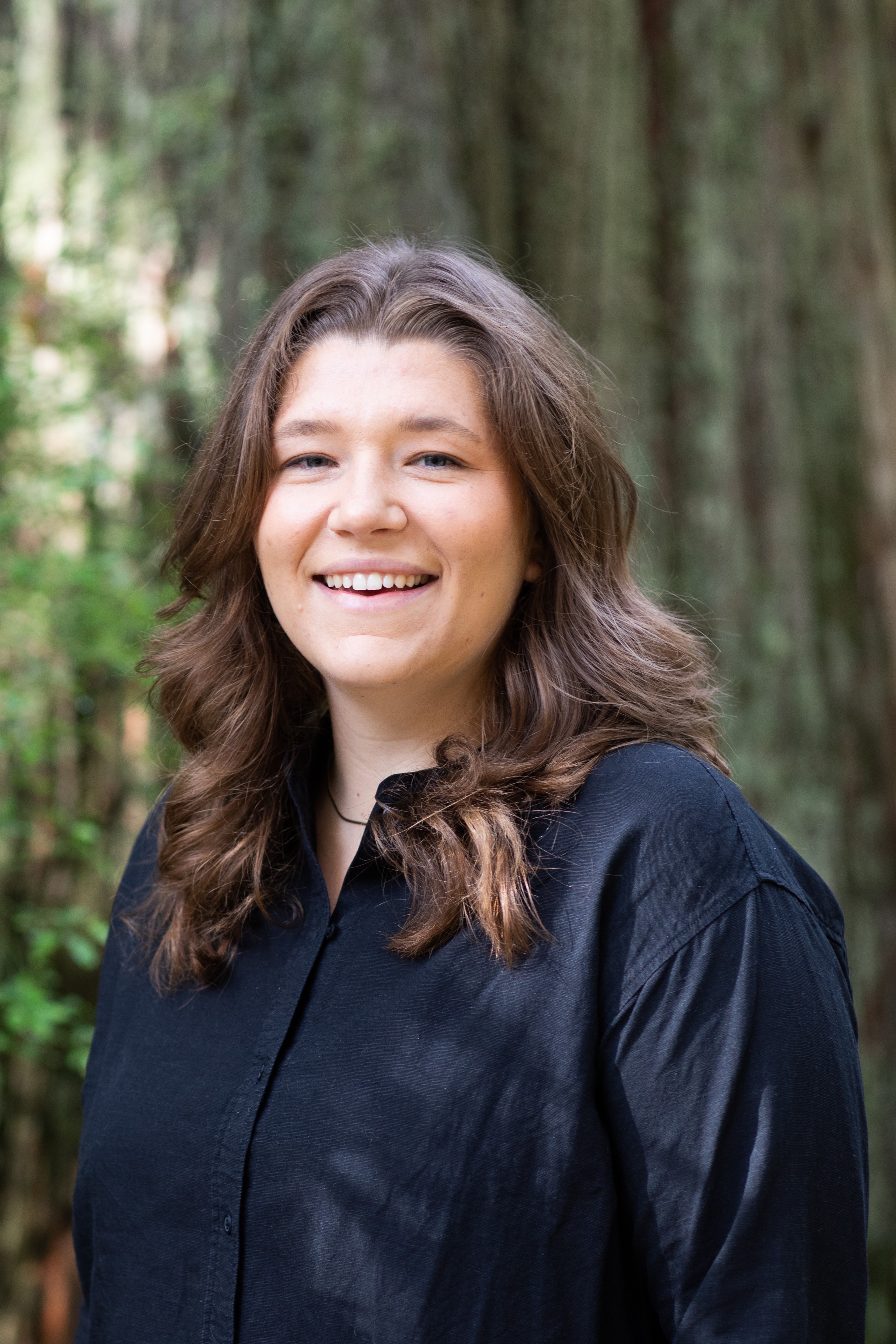
Julia Kreiner is an assistant professor at the University of Chicago studying the rate and nature of plant adaptation to the agricuturalization of our landscapes. Her work has focused on the rapidly evolving weed, Amaranthus tuberculatus (common waterhemp), whose range in North America predates these changes. By integrating cutting-edge techniques in population genomics with phenotyping and sampling across the landscape and through time to characterize evolution across scales, her work has addressed the mechanisms, facilitators, and limits to adaptation in these settings. In particular, her work has unraveled the relative importance of new mutation, standing variation, and gene flow in the spread of herbicide resistance; phenotypic and genomic signatures of adaptation to agriculture; and the tempo of these evolutionary processes over the past two centuries.
 Bartlomiej Troczka - University of Exeter
Bartlomiej Troczka - University of Exeter
I completed my BSc in Biochemistry at Aberystwyth University and then went on to do my PhD at Rothamsted Research in partnership with Cardiff University to understand the molecular target and emerging resistance to diamide insecticides. Afterwards, I continued working at Rothamsted on a post-doctoral project investigating molecular determinants of insecticide tolerance in bees and bumblebees, where I got my first hands-on experience investigating cytochrome P450s. After completion of the project, I briefly moved on to work for Oxitec Ltd. helping to develop transgenic insect strains for control of agricultural pests such as fall armyworm. From Oxitec I relocated to the University of Exeter, at their Cornwall campus to investigate molecular mechanisms of host-shift and xenobiotic tolerance in a global crop pest peach potato aphid Myzus persicae working under Professor Chris Bass. My main research interests are around how small xenobiotic compounds interact with insects and what strategies insects employ to protect themselves from harmful substances. To explore these themes, I have been awarded a BBSRC Discovery Fellowship focusing on functionally characterising the P450ome of a global crop pest Myzus persicae.
Leena Lindström - University of Jyväskylä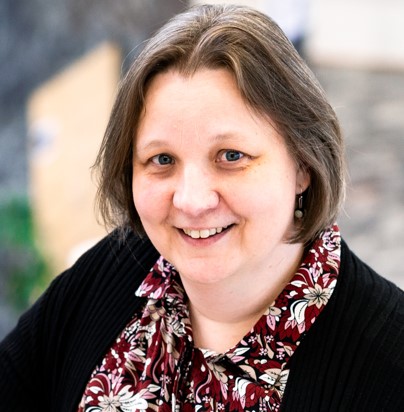
Professor Leena Lindström is an evolutionary ecologist who has worked for more than two decades on topics ranging from the evolution of animal colouration to the effects of pesticides on insect life history traits and evolutionary potential. Currently, her research group focuses on identifying the mechanisms that contribute to the invasion of pest species to new environments, particularly in the north. For example, her group has found that the spread of the Colorado potato beetle (Leptinotarsa decemlineata) northward is slowed by the beetles’ ability to adapt to a lengthening photoperiod, which impairs the ability of individuals to prepare in time for overwintering. Current research has focused on how human activities, particularly the use of pesticides, affect the organisms and whether the resulting stress affects evolution. For example, whether sublethal concentration of pesticides (herbicides, fungicides, insecticides) can induce selection pressures that promote the invasion of pest species. She is also interested in the transgenerational effects of pesticides and how these may influence the evolution of resistance to pesticides in insects.
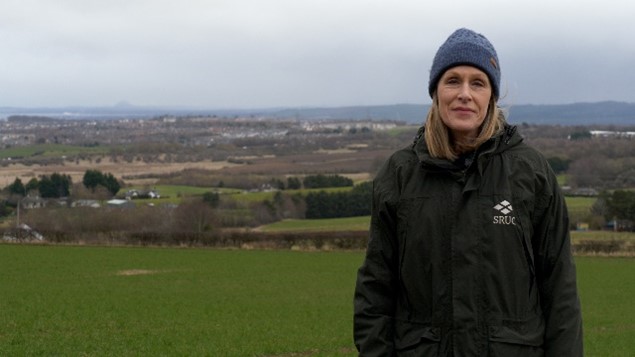
Fiona Burnett - SRUC
Fiona Burnett is Professor of Applied Plant Pathology and Arable Knowledge Lead at Scotland’s Rural College (SRUC). Her expertise covers most aspects of applied plant health and she plays an active role in the advice and diagnoses offered in SRUC’s crop clinic, and the crop health monitoring schemes in Scotland. She has particular research interests in Integrated Pest Management and pesticide stewardship. Fungicide resistance and efficacy are core activities and she chairs the Fungicide Resistance Action Group–UK, which produces advice and recommendations to manage emerging resistance issues. She is Agriculture Sector Lead in the directorate for Scotland’s Plant Health Centre of Expertise (https://www.planthealthcentre.scot/). The steering groups, boards and committees she contributes to are extensive and include the Academic Advisory Panel for Scottish Government’s Agricultural Reform Implementation Overside Board, the UK Plant Health Forum (Defra), the Scottish Voluntary Initiative and the British Crop Protection Council’s Diseases Working Group. She chairs the Association for Crop Protection in Northern Britain and she is on the Board of Scottish Quality Farm Assured Cereals Ltd, as well as being their Technical Director. She is a Fellow of the Royal Society of Biology.
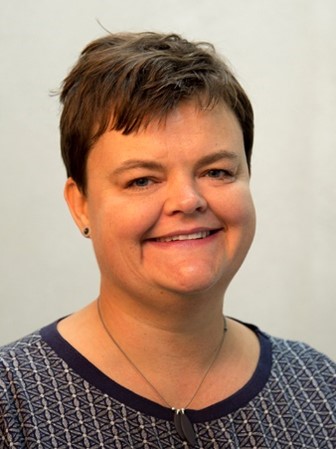
Mette Sønderskov - Aarhus University
Mette Sønderskov is a plant ecologist working on integrated weed management with the diversification of cropping systems and reduced reliance on pesticides as the main objectives. As resistance is a driver for farmers to change cropping systems and implement alternative management strategies, the prevention and management of herbicide resistance has become a focus area. Mette is working on projects both on national and European scale to disseminate research results to advisors and farmers encouraging changes in agricultural practices.
Mette Sønderskov is a senior advisor at the Department of Agroecology at Aarhus University in Denmark.
 Dana Macgregor - Rothamsted Research
Dana Macgregor - Rothamsted Research
I have a broad background in plant molecular genetics and my scientific career has focused understanding how plants deal with environmental change and anthropogenic challenges. I have explored a variety of traits, including root system architecture development, circadian rhythmicity, seed dormancy, and weediness, and tested how these change in response to a variety of stresses, including responses to temperature, drought, waterlogging and herbicide application. My current focus is on agricultural weeds as they endure both environmental challenges and the rigors of modern agriculture with apparent ease. The species I study includes black-grass (Alopecurus myosuroides) the UK's most problematic weed. Recent black-grass highlights include gaining the ability to functionally validate genes of interest in planta and being able to choose appropriate gene targets from information gained by sequencing and annotating black-grass’s genomes, including its chromosomal and extra-chromosomal circular DNA. My overarching objective is to gain a mechanistic understanding of traits that give weeds their superior resilience and adaptability, generating knowledge that will directly contribute to sustainable weed control and generate novel avenues for future-proofing crops to climate change.
Prof. Dolores Fernández Ortuño - University of Malaga
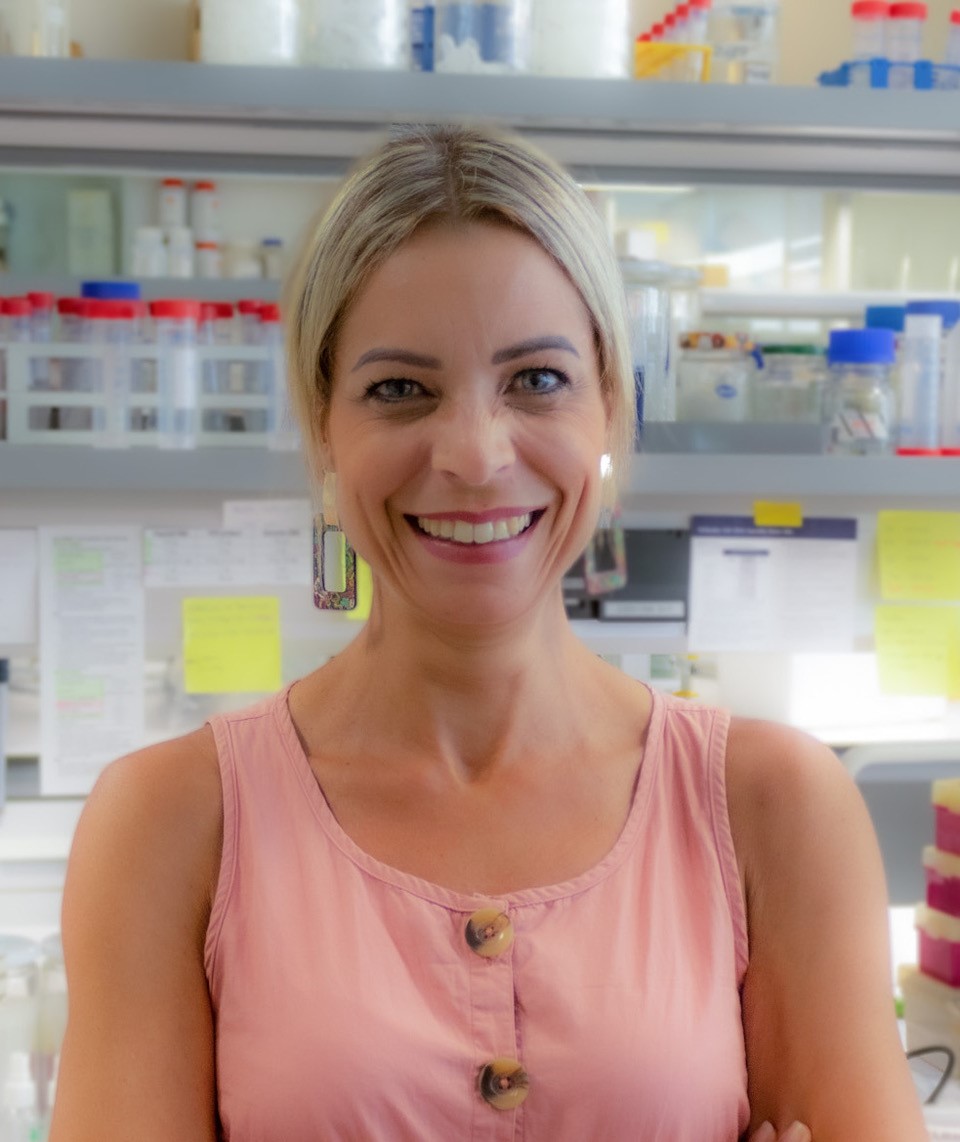
Dolores Fernández Ortuño is Senior Lecturer at the University of Malaga (Spain). Her scientific career has been focused on the chemical control of fungal diseases, helping farmers to make more rational decisions about the use of fungicides in different phytopathogenic fungi such a Podosphaera xanthii, Fusarium spp. and Botrytis cinerea. After two long-term postdoctoral stays at Rothamsted Research (UK) and the University of Clemson (USA), she returned to Spain through the prestigious Spanish Research Program Ramón y Cajal. Her research work has a great impact on agriculture, and it is reflected in numerous dissemination and scientific transfer activities through articles, guest lectures, interviews and news. Considering that the diversity of fungicides available to growers will be increasingly restricted and problems of resistance, it is essential to develop new crop protection tools that are compatible with a sustainable agricultural environment. For this reason, her current research line aims to provide solutions for the control of P. xanthii and B. cinerea by identifying new targets, essential proteins for the development and/or pathogenicity and the design of new "biofungicides" such as dsRNAs and aptamers, with the idea to increase the number of tools available for the integrated control of the powdery mildew and gray mold diseases.
Jo Lines - London School of Hygiene and Tropical Medicine
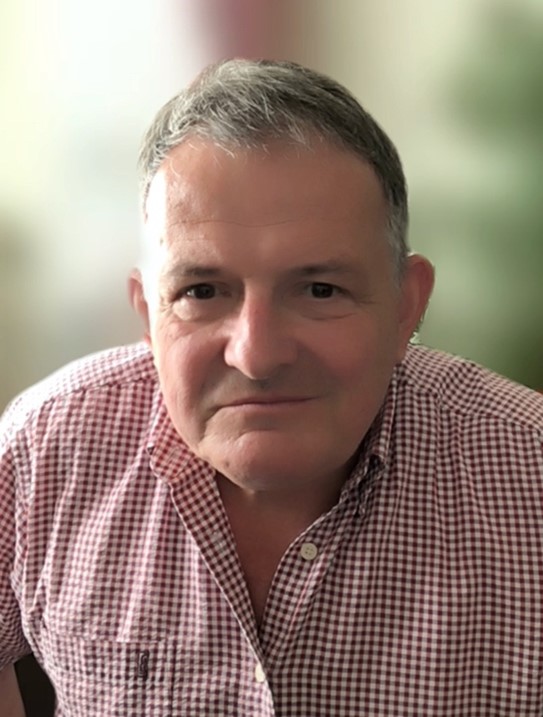 Jo was trained first as an evolutionary geneticist, and then as a vector biologist. Since 1983, he has been working on practical methods of malaria vector control. In the 1990s, he was involved in the development of insecticide-treated nets, a technology that is thought to have prevented more than 10 million deaths due to malaria in Africa. Jo is interested in intersectoral issues and multi-disciplinary research methods. From 2009 to 2011, he was Coordinator of the Vector Control Unit of the Global Malaria Programme, in WHO HQ, Geneva. In this role, he initiated and led the development of the Global Plan for Insecticide Resistance Management in malaria vectors (GPIRM). Since being back at LSHTM, he is working on the implementation of GPIRM and the question of what will stabilise the absence of malaria in highly receptive parts of Africa. As part of the latter, he is working on the issue of man-made malaria, especially how some forms of environmental development tend to build malaria out, while others tend to build it in.
Jo was trained first as an evolutionary geneticist, and then as a vector biologist. Since 1983, he has been working on practical methods of malaria vector control. In the 1990s, he was involved in the development of insecticide-treated nets, a technology that is thought to have prevented more than 10 million deaths due to malaria in Africa. Jo is interested in intersectoral issues and multi-disciplinary research methods. From 2009 to 2011, he was Coordinator of the Vector Control Unit of the Global Malaria Programme, in WHO HQ, Geneva. In this role, he initiated and led the development of the Global Plan for Insecticide Resistance Management in malaria vectors (GPIRM). Since being back at LSHTM, he is working on the implementation of GPIRM and the question of what will stabilise the absence of malaria in highly receptive parts of Africa. As part of the latter, he is working on the issue of man-made malaria, especially how some forms of environmental development tend to build malaria out, while others tend to build it in.
Nichola Hawkins - NIAB
Nichola Hawkins is a researcher in Fungicide Resistance at NIAB, Cambridge UK. Her work combines evolutionary and functional genetics, applying evolutionary concepts such as fitness trade-offs, functional constraints and adaptive landscapes to address questions with practical implications in the prediction and management of resistance evolution. She completed her PhD and postdoctoral research in the Fungicide Resistance Group led by Dr Bart Fraaije, before being awarded a BBSRC Discovery Fellowship to develop an independent research programme. She works primarily with the fungal wheat pathogen Zymoseptoria tritici, and her fellowship project uses experimental evolution to compare resistance outcomes under different selection scenarios, alongside applied work monitoring sensitivity changes in the field.
Julian Smith - Chair
David Comont
Lin Field
Steve Foster
Ying Han
Joe Helps
Richard Hull
Kevin King
Patry Ortega-Ramos
Grace Shirley
Pradip Songara
Sheila Bishop
Accommodation is available at the hotels below where special rates have been agreed, this should be booked and paid for directly with the hotels.
Aubrey Park Hotel, Hemel Hempstead Rd, Redbourn. St Albans, AL3 7AF - quote Rothamsted Research in order to book the room at £88 per night including VAT and breakfast.
Premier Inn, Luton (Airport) Hotel, Osborne Road, Luton, LU1 3HJ Book on-line, website rates only.
Luton Hoo Hotel, Golf & Spa, The Mansion House, Luton, Bedfordshire, LU1 3TQ - use promo code ROTH240924
Transport will be provided to and from the above designated hotels when booked at the time of registering for the Conference. Please note the transfers are as follows -
Monday 23rd September and Tuesday 24th September all transfers to and from accommodation/dinner/conference are included, Wednesday 25th September transfer to Conference only.
For information on travelling to our Harpenden site, click here.
Local Taxi Companies:
Letter of Invitation
If a letter of invitation is required please e-mail: rres.resistance@rothamsted.ac.uk